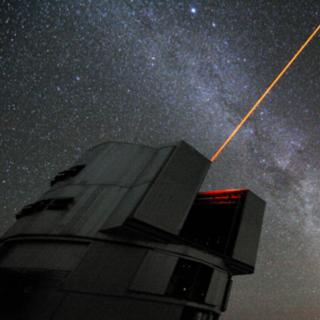Bibcode
Battaglia, G.; Sollima, A.; Nipoti, C.
Referencia bibliográfica
Monthly Notices of the Royal Astronomical Society, Volume 454, Issue 3, p.2401-2415
Fecha de publicación:
12
2015
Número de citas
36
Número de citas referidas
31
Descripción
Estimates of the mass distribution and dark-matter (DM) content of dwarf
spheroidal galaxies (dSphs) are usually derived under the assumption
that the effect of the tidal field of the host galaxy is negligible over
the radial extent probed by kinematic data sets. We assess the
implications of this assumption in the specific case of the Fornax dSph
by means of N-body simulations of a satellite orbiting around the Milky
Way. We consider observationally motivated orbits and tailor the initial
distributions of the satellite's stars and DM to match, at the end of
the simulations, the observed structure and kinematics of Fornax. In all
our simulations the present-day observable properties of Fornax are not
significantly influenced by tidal effects. The DM component is altered
by the interaction with the Galactic field (up to 20 per cent of the DM
mass within 1.6 kpc is lost.), but the structure and kinematics of the
stellar component are only mildly affected even in the more eccentric
orbit (more than 99 per cent of the stellar particles remain bound to
the dwarf.). In the simulations that successfully reproduce Fornax's
observables, the dark-to-luminous mass ratio within 1.6 kpc is in the
range 5-6, and up to 16-18 if measured within 3 kpc.
Proyectos relacionados

Evolución Galáctica en el Grupo Local
La formación y evolución de galaxias es un problema fundamental en Astrofísica. Su estudio requiere “viajar atrás en el tiempo”, para lo cual hay dos enfoques complementarios. El mas extendido consiste en analizar las propiedades de las galaxias a diferentes distancias cosmológicas. Nuestro equipo se concentra en el otro enfoque, denominado
Matteo
Monelli